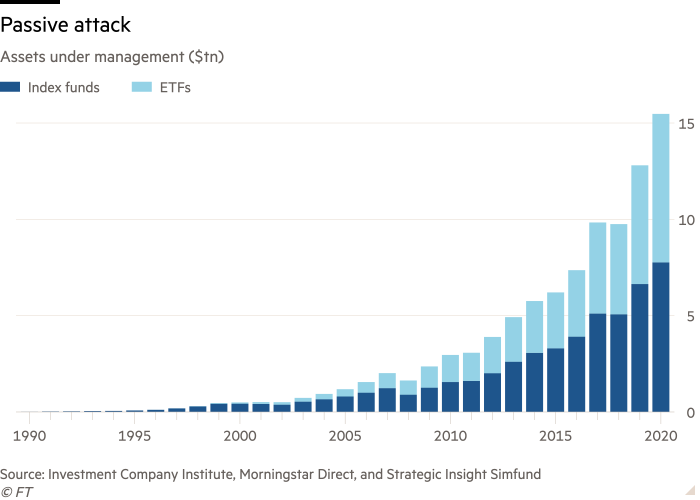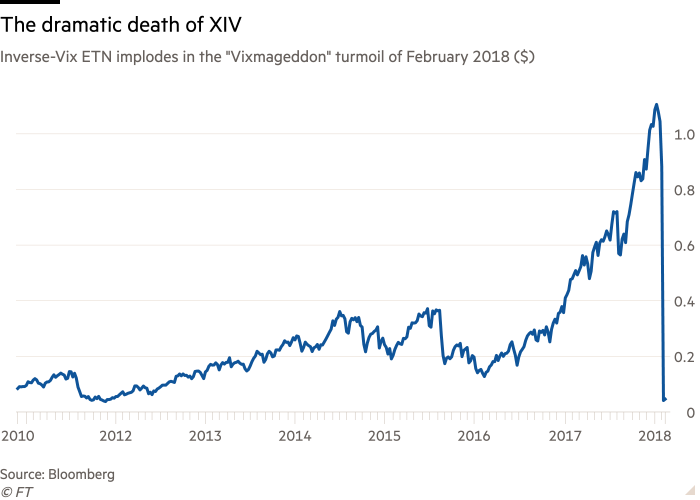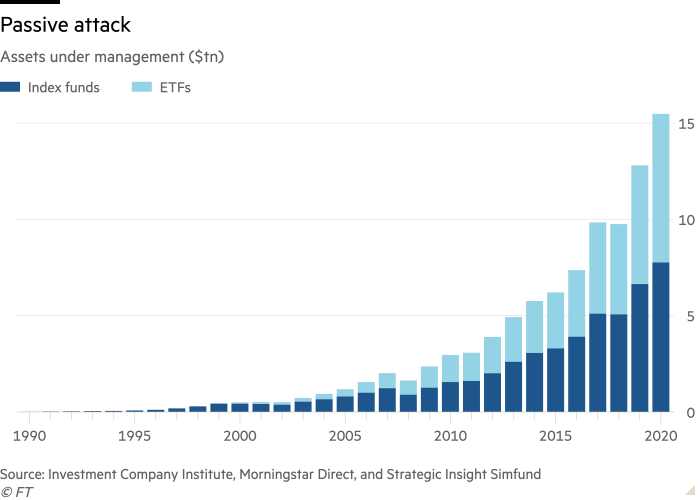[ad_1]
It is easy to dismiss as a nothingburger the $9m fine recently slapped on S&P Dow Jones Indices for a seemingly minor glitch with a small, esoteric financial gauge. The case is convoluted and three years old. Who cares?Â
Many should. Although the Securities and Exchange Commission’s action lacked the punch of an insider trading ring exposé, it may prove the modest beginning of an overdue attempt to tackle one of the least-appreciated but thorniest issues dogging modern markets: the rising power and importance of indices, and the oligopoly that controls them.
Indexing used to be a sleepy business, often started by niche newspapers as a service to subscribers. It was not very profitable, important or complicated, and was mostly seen as a way to try to measure the economy’s vim. When Charles Dow in 1884 created the inaugural version of the famous indices that bear his name it consisted of nine railroad stocks, a steamship company and Western Union.
The modern indexing era started in 1957, when Standard & Poor’s launched the first continuously-compiled, computer-calculated stock market gauge. But it is over the past decade that the importance of indices has exploded, and the industry providing them (at least in stocks) has coalesced into a clear “Big Threeâ€. S&P, MSCI, and FTSE Russell together have a combined market share of about 70 per cent, and are wildly profitable.Â
They have arguably accrued discreet quasi-regulatory powers over swaths of global markets, thanks to their influence over where trillions of investment dollars flow. Indices have morphed from being snapshots of markets to a force that exerts influence over them — thanks to the $15tn that now resides in passive investment funds.

Index providers strive to be as fair, rigorous and rules-based as possible, and indices are often seen as objective and mathematical reflections of markets. Yet indices are also unavoidably subjective, as providers decide the conditions for inclusions, exclusion and weightings. Nowadays, these are decisions with huge consequences. Underscoring its growing importance, the industry last year even suffered its first insider trading scandal, when the SEC charged an S&P employee with pocketing $900,000 by trading ahead of tweaks to indices he oversaw.
The more recent case is complex. Simply put, the SEC fined S&P $9m for briefly publishing “stale†prices for an index that underpinned a popular volatility-linked fund known as XIV when it imploded on February 5 2018, a wild day of trading later dubbed ‘Volmageddon’. In a statement, S&P DJI neither admitted nor denied the charge, but accepted the fine and said that it “takes these matters seriously and is committed to transparency and the integrity of its benchmark determination processâ€.Â
The central problem was a mechanism called “auto-hold†that was triggered when prices moved unusually violently, a feature that was not publicly disclosed and not overridden on the day by S&P. In other words, it was a fairly idiosyncratic situation. Yet there are hints that it may have wider implications.Â

For example, the SEC found that on the day in question, one of the two index managers responsible for the XIV index was out of the office, leaving just one person monitoring “thousands of indicesâ€. Even the industry’s own trade body estimates that there are now more than 3m financial benchmarks being continuously maintained by its members, which means resources can get spread thin.Â
Most of the time, this is no problem. Bigger, more important indices like the S&P 500 are more assiduously monitored than niche ones, such as that volatility-linked XIV, are tracked. Minor glitches are exceptionally rare.
But as SEC commissioner Hester Peirce remarked in her dissent to the S&P fine, the SEC’s decision “hint at a deeper, unspoken concern†that index providers are not governed by a regulatory framework explicitly tailored to their activities. Notably, even Peirce, a Republican appointee who has often opposed regulatory over-reach, said she was open to exploring such a framework.Â
The EU now regulates the industry, and the SEC’s action indicates that the US watchdog might be considering scrapping the “publisher’s exclusion†that shields index providers from more onerous regulation and legal duties of a formal investment adviser.Â
Whether this is the right approach is hard to say. Simply making index providers fiduciaries will certainly not solve the trickiest issues, and could introduce new ones. Yet rule books undoubtedly need to be updated to reflect modern reality.
robin.wigglesworth@ft.com
Twitter: @robinwigg
[ad_2]
Source link






